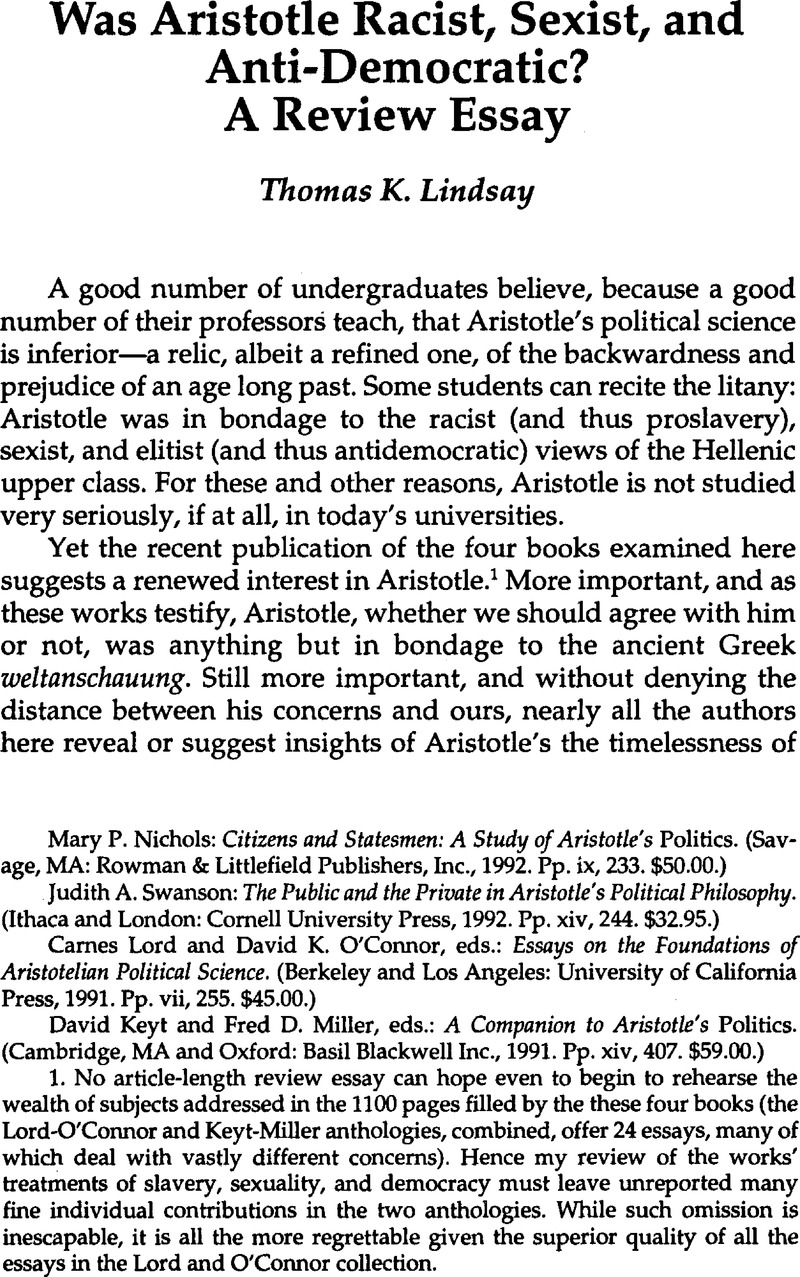Published online by Cambridge University Press: 05 August 2009

1. No article-length review essay can hope even to begin to rehearse the wealth of subjects addressed in the 1100 pages filled by the these four books (the Lord-O'Connor and Keyt-Miller anthologies, combined, offer 24 essays, many of which deal with vastly different concerns). Hence my review of the works' treatments of slavery, sexuality, and democracy must leave unreported many fine individual contributions in the two anthologies. While such omission is inescapable, it is all the more regrettable given the superior quality of all the essays in the Lord and O'Connor collection.
2. Unless otherwise indicated, all in-body references are to the Politics.
3. These four thoughtful treatments of slavery appear not to have exhausted the subject. Darrell Dobbs offers a new analysis of Aristotle's defense of natural slavery in the February 1994 issue of the Journal of Politics. Without detailing Dobbs's thesis here, suffice it to say that, in this reviewer's opinion, Dobbs's deeply reasoned and provocative defense of Aristotle's defense of slavery is likely to shake up scholarship on the subject for some time to come.
4. Rather, it is precisely these sentiments that explain Aristotle's efforts to reconcile the rulers and would-be rulers composing his audience to democracy as the best available option. On the likely immediate audience of the Politics, see Lord, Carnes, “Introduction,” and Abram Shulsky, “The ‘Infrastructure’ of Aristotle's Politics…” (Foundations).Google Scholar